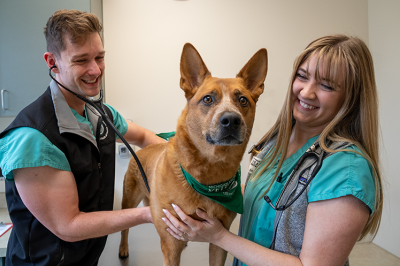
Preventative care is a cornerstone of responsible pet ownership, helping ensure that animals lead long, healthy lives. While vaccinations are a key component of disease prevention, comprehensive care goes beyond just immunizations. Prascend For Horses Preventative measures such as regular health check-ups, proper nutrition, parasite control, dental care, and proactive monitoring of chronic conditions are essential to keeping pets in optimal health. By focusing on early detection and lifestyle management, preventative care not only reduces the risk of disease but also improves a pet’s quality of life. This article explores the various aspects of preventative care for pets, emphasizing the importance of a holistic approach.
- The Role of Vaccinations in Disease Prevention
Vaccinations are one of the most effective tools in preventing serious, and sometimes life-threatening, diseases in pets. Core vaccines, such as those for rabies, distemper, and parvovirus in dogs, and feline panleukopenia and calicivirus in cats, are crucial in protecting pets from infectious diseases that can spread easily and have high mortality rates. Non-core vaccines, tailored to a pet’s lifestyle, may include protection against Lyme disease, Bordetella (kennel cough), or feline leukemia. Veterinarians usually recommend vaccination schedules based on factors like the animal’s age, health status, and environment. However, vaccinations are just one part of a broader preventative care strategy that supports the overall well-being of pets.
- Regular Wellness Exams: The First Line of Defense
Routine wellness exams are an essential part of preventative care, as they allow veterinarians to monitor a pet’s health and catch potential issues early. During these exams, vets assess a pet’s overall condition, checking for signs of illness, infections, or abnormalities that might otherwise go unnoticed. These appointments also provide an opportunity to review a pet’s weight, dental health, and nutrition, and to update vaccination schedules as necessary. By maintaining a schedule of regular exams, pet owners can prevent the onset of chronic conditions and manage existing health concerns before they become more serious. Early detection of problems like kidney disease, diabetes, or heart conditions can significantly improve treatment outcomes.
- Nutrition and Weight Management as Preventative Measures
Proper nutrition plays a critical role in maintaining a pet’s health and preventing illness. A balanced diet that meets the specific needs of an animal’s breed, age, and health status is key to supporting their immune system, joint health, and overall vitality. Pets that are fed high-quality, nutrient-rich diets are more resistant to disease and less likely to develop chronic conditions such as obesity, diabetes, or arthritis. Additionally, maintaining a healthy weight is crucial for preventing issues like joint problems and cardiovascular diseases. Pet owners should work with their veterinarians to ensure that their pets receive the right nutrition, including supplements like omega-3 fatty acids or glucosamine when necessary.
- Parasite Control: Protecting Pets from Hidden Threats
Parasite prevention is another important aspect of keeping pets healthy. Fleas, ticks, heartworms, and intestinal parasites not only cause discomfort but can also transmit serious diseases such as Lyme disease, ehrlichiosis, and heartworm infection. Year-round preventative treatments, including topical medications, oral preventatives, and collars, can effectively protect pets from these parasites. Regular fecal exams are also recommended to check for internal parasites like roundworms and hookworms, which can often be asymptomatic but may lead to serious health issues. By proactively managing parasite control, pet owners can significantly reduce the risk of these hidden threats to their pets’ health.
- Dental Care: More Than Just Clean Teeth
Oral health is often overlooked in pet care, but it is a crucial component of preventative care. Dental disease, particularly periodontal disease, is one of the most common health problems in pets and can lead to more serious issues such as heart, kidney, and liver disease if left untreated. Regular brushing, dental chews, and professional cleanings are essential in preventing the buildup of plaque and tartar, which can lead to gingivitis and tooth decay. In addition to maintaining oral hygiene, veterinarians may recommend routine dental exams to check for signs of infection or disease. Proper dental care not only ensures a healthy mouth but also protects the overall health of pets.
- Managing Chronic Conditions with Preventative Care
For pets with chronic health conditions such as arthritis, diabetes, or kidney disease, preventative care focuses on managing these issues to improve quality of life and prevent further complications. Regular monitoring through blood tests, urine analysis, and imaging helps track the progression of these conditions, allowing for timely adjustments to treatment plans. Preventative care may also include the use of supplements, medications, or specialized diets to manage symptoms and slow disease progression. For example, pets with arthritis might benefit from joint supplements or anti-inflammatory medications, while those with diabetes may require insulin and dietary changes. By being proactive, pet owners can minimize the impact of chronic conditions and help their pets live more comfortably.
In conclusion, while vaccinations remain a critical component of preventative care for pets, a more comprehensive approach is necessary to ensure long-term health. Regular wellness exams, proper nutrition, parasite control, dental care, and proactive management of chronic conditions all play a vital role in preventing illness and maintaining a pet’s overall well-being. By investing in preventative measures, pet owners can significantly enhance their pets’ quality of life, reducing the need for emergency treatments and ensuring their companions live healthier, happier lives.